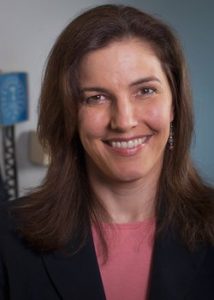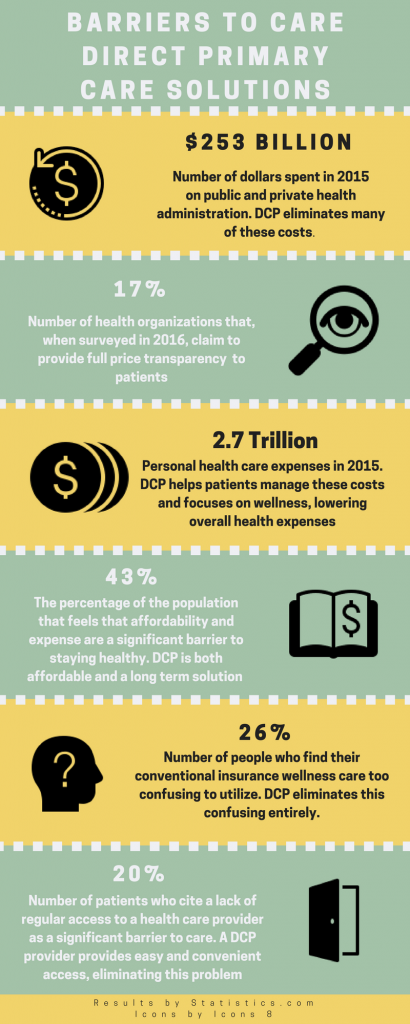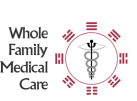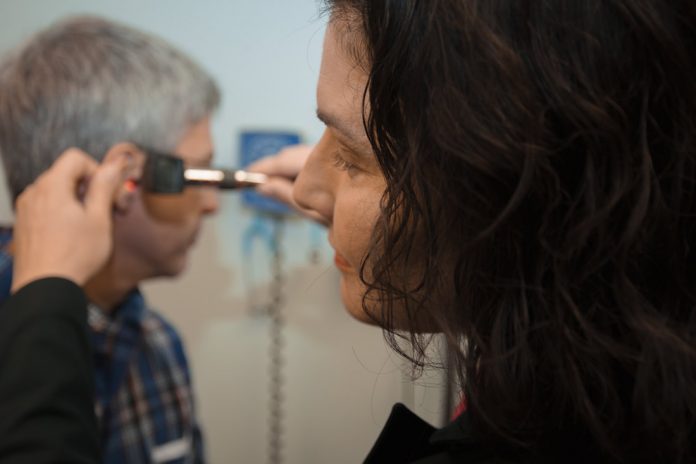Whole Family Medical Care Brings Relationships Back to Medicine
By Chris Watson
Nothing is more personal than our heath. In the days of direct family and general practice, our doctor was our health care provider, advisor, confident, even manager and coach when we needed it. She was the one place we could get that uniquely medical mix of tough advise and sympathetic care. In essence, our health concerns were not merely a series of transactions. Health care was about relationships.
For the last two years Dr. Eleanor Host has at Whole Family Medical Care worked to restore relationships to health. “I started with a hospital owned practice and then when that physician group went in a different direction I went into my own practice.” Dr. Host has been on the front lines of the rapidly, some may even say chaotically changing, health care scene. “I have been part of it all from a hospital physician group to my own insurance driven practice. As I worked and progressed in my career the one thing I noticed was that I was spending less time with patients and more time on patient maintenance. I knew it was time for a change.”
The Evolution of Health Care
Whole Family Medical Care, headed by Dr. Host, is a direct care practice. “The basic model, the one we know of,

Whole Family Medical Care
uses insurance driven metrics to provide care. Like all insurances, numbers are the prime mover. Insurance companies have large numbers and therefore negotiate so called discounts for their patients. In many cases prices on health care services are inflated because, in the end, insurance companies will come along and negotiate the service fee down.” The problem, of course, is that patients are lost in the miasma of negotiations en masse. “To make insurance paid care feasible I had to do most of my work for the insurance companies. I spent less and less time with patients.”
Overall regulation didn’t help either. The Affordable Care Act added a level of complexity, particularly with electronic record keeping. “I have always been a believer and user of electronic records,” states Dr. Host. “As a physician, I want to stay with the current standards. The problem became a matter of time. I was spending upwards of 5 hours a week just ensuring regulatory compliance. As a solo provider, this was untenable. Likewise, a group practice removes that time burden but adds a higher patient count.”
Vintage Style, New Model
“I wanted a change. I wanted to help my patients take charge of their health and I wanted to do the thing I have spent years training to do: be a doctor,” recalls Host earnestly. “I started researching other ways to deliver care to my patients.”
The problem wasn’t an easy one. How do you avoid the charges, time, and burden of insurance driven care and still get paid? The answer turned out to be surprisingly simple. Go direct to the patients.
“It seems novel but it really isn’t,” says Dr. Host. “We charge a monthly fee to access to our services. You get to see, visit, call, or tele-med as needed. No insurance cards, no co pays, no filings, and no appeals.” The model is called Direct Primary Care (DPC) and it is both affordable and practical. With this type of health care, you still need coverage for hospitalization. Dr. Host is an independent health care provider of family and general practice services.
“Regular family and general health care doesn’t need large hospital systems,” says Host emphatically. “Insurance will, by the sheer size and weight of the bureaucracy, make those services unwieldly and difficult. Think of it like car insurance. Imagine if you had to file a claim every time you needed an oil change or tires rotated. How much would that drive up the price?”

Direct Care, Life Care, Better Care
Direct Primary Care (DCP) is not insurance. Hospitalization and catastrophic coverage is still recommended. For those who cannot afford healthcare insurance and do not qualify for Medicaid, DPC may be an ideal way to gain the peace of mind of true healthcare coverage.
“First and foremost,” says Dr. Host, “I can see more patients for longer periods of time. I am not bound by billing issues or insurance treatment coding rules. Those restrictions cause physicians to segregate visits or limit the time they see a patient. In this model I can work with the patients both in real time and for the long term.” The monthly fee to Whole Family Medical Care is closer to a membership program than insurance. Dr. Host can consult with a patient as often and as long as treatment and care require.
Second, Whole Family Medical Care emphasizes long-term care rather than the fix it and forget it care that conventional insurance pays for. “I love the fact that I can work with my members over the long term. We can discuss all aspects of healthy living. We can use alternatives, including acupuncture, massage therapy, and mental health professionals to deal with a patient as a whole person, rather than a symptom. Above all, I can get to know my patients personally, leading to a total approach to health from youth to retirement and beyond.
Affordable, Reliable, Flexible
Perhaps the best part of the DCP model is its trio of affordability, flexibility, and reliability. “We do many tests and metabolic panels right here in the office,” says Dr. Host. “In addition, we make arrangements for tests that we need and negotiate pricing accordingly. Many service providers have very different structures when looking to bill through insurance rather than directly to the patient. Medications work the same way. We fill many of the prescriptions right here in the office at significant savings to our members.”
Besides the obvious affordability there is a reliability and flexibility to a membership with Direct Primary Care. “I have a variety of ways to see patients, including tele-medicine and even text. I use a secure server to deliver texts directly to me. That server gives us the flexibility to, say, order a medication while providing the security required for health information privacy,” claims Host. “It is not unusual for a member to text me that they need a refill and I text back that it has already been filled and waiting for pick up.”
Finally, DPC offers flexibility. You see the doctor when you need to. “It is so important that my patients want to see me and talk to me,” states Host emphatically. “Ease of access, convenience, affordability, even just being just sick is not, necessarily, enough incentive for a patient to see a physician they don’t know or can’t get a hold of.” Pausing for emphasis, Host continues. “I want to know and understand my patients. That takes time and focus. I listen first and recommend second. If that takes a few appointments then let’s do that. If that takes communicating on video then let’s do that. In other words, let’s be a team and work together, patient and professional, to get and stay healthy. Sure, I can help you when you are sick. I can also help you get healthy and feel much better each and every day. That is what medicine is all about.”
Whole Family Medical Care, LLC

28442 East River Road, Suite 204
Perrysburg, Ohio 43551
419-872-3250
Dr. Eleanor Host is a Board Certified family physician, licensed in Ohio and Michigan.
She was trained in acupuncture in 2000 through the Helms Medical Institute and has been in successful practice for over fifteen years. Dr. Host has expertise in Scalp Acupuncture, Percutaneous Nerve Stimulation, Five Energy Balancing, and Meridian Channel Flow.
She maintains her membership in the American Academy of Medical Acupuncture and completes regular training classes.
- Graduate of Northeastern Ohio Universities College of Medicine (NEOUCOM), 1992
- Post graduate residency training at WW Knight Family Practice/The Toledo Hospital graduated 1995
- Independent solo practice since 2000 (previously Affiliated with Mercy Medical Group)
- Certified Physician’s Assistant on staff
- Certified Acupuncture Specialist since 2000 – Over 300 hours training at UCLA
Member:
- American Academy of Family Physicians
- Wilderness Medical Society
- Board Certified in Family Medicine (current with maintenance of certification)







